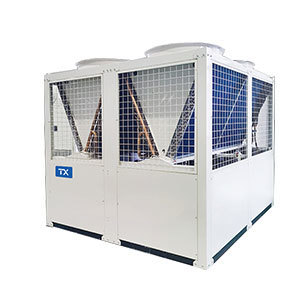Understanding the Benefits of Modular Chiller Systems in Industrial Applications

Modular chiller systems represent a significant advancement in the field of industrial cooling equipment, offering unique benefits that can enhance operational efficiency and flexibility. Unlike traditional chiller systems, which typically consist of a single, large unit, modular chillers are composed of smaller, interconnected units that can be independently controlled. This design allows for a range of advantages that cater to the specific needs of industrial applications.
One of the primary benefits of modular chiller systems is their scalability. Businesses can start with a smaller number of units and expand their cooling capacity as needed, making these systems particularly appealing for operations that anticipate growth or fluctuating cooling demands. This flexibility eliminates the need for large initial investments in cooling equipment and allows for a more manageable allocation of resources over time.
Energy efficiency is another hallmark of modular chiller systems. These units can operate in tandem but can also function independently, allowing for optimized energy use. By adjusting the operation of each module based on real-time cooling requirements, facilities can significantly reduce energy consumption compared to traditional systems that often run at full capacity regardless of demand. This not only leads to lower operational costs but also supports environmental sustainability efforts.
Furthermore, modular chiller systems are designed with maintenance and serviceability in mind. The modular design enables easier access to individual components, making routine maintenance more straightforward and less time-consuming. If one module requires servicing, the rest of the system can continue to function, ensuring uninterrupted cooling. This aspect is especially crucial in industrial environments where downtime can lead to significant production losses.
In terms of installation, modular chiller systems offer greater flexibility. Their smaller size allows for easier integration into existing facilities, even in spaces with limited room. Additionally, the ability to configure these systems to meet specific cooling requirements means that businesses can tailor their installations to optimize performance effectively.
When considering a cooling solution for your industrial operations, the advantages of modular chiller systems cannot be overlooked. Their scalability, energy efficiency, ease of maintenance, and flexible installation options make them an attractive choice for a variety of industries. By opting for a modular approach, businesses can enhance their cooling capabilities while simultaneously benefiting from reduced costs and a lower environmental impact.
In conclusion, modular chiller systems provide numerous benefits that can significantly improve the efficiency and adaptability of industrial cooling processes. By understanding the features and applications of these systems, businesses can make informed decisions that align with their operational goals and sustainability objectives.
One of the primary benefits of modular chiller systems is their scalability. Businesses can start with a smaller number of units and expand their cooling capacity as needed, making these systems particularly appealing for operations that anticipate growth or fluctuating cooling demands. This flexibility eliminates the need for large initial investments in cooling equipment and allows for a more manageable allocation of resources over time.
Energy efficiency is another hallmark of modular chiller systems. These units can operate in tandem but can also function independently, allowing for optimized energy use. By adjusting the operation of each module based on real-time cooling requirements, facilities can significantly reduce energy consumption compared to traditional systems that often run at full capacity regardless of demand. This not only leads to lower operational costs but also supports environmental sustainability efforts.
Furthermore, modular chiller systems are designed with maintenance and serviceability in mind. The modular design enables easier access to individual components, making routine maintenance more straightforward and less time-consuming. If one module requires servicing, the rest of the system can continue to function, ensuring uninterrupted cooling. This aspect is especially crucial in industrial environments where downtime can lead to significant production losses.
In terms of installation, modular chiller systems offer greater flexibility. Their smaller size allows for easier integration into existing facilities, even in spaces with limited room. Additionally, the ability to configure these systems to meet specific cooling requirements means that businesses can tailor their installations to optimize performance effectively.
When considering a cooling solution for your industrial operations, the advantages of modular chiller systems cannot be overlooked. Their scalability, energy efficiency, ease of maintenance, and flexible installation options make them an attractive choice for a variety of industries. By opting for a modular approach, businesses can enhance their cooling capabilities while simultaneously benefiting from reduced costs and a lower environmental impact.
In conclusion, modular chiller systems provide numerous benefits that can significantly improve the efficiency and adaptability of industrial cooling processes. By understanding the features and applications of these systems, businesses can make informed decisions that align with their operational goals and sustainability objectives.
PREVIOUS:

